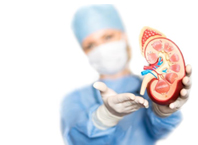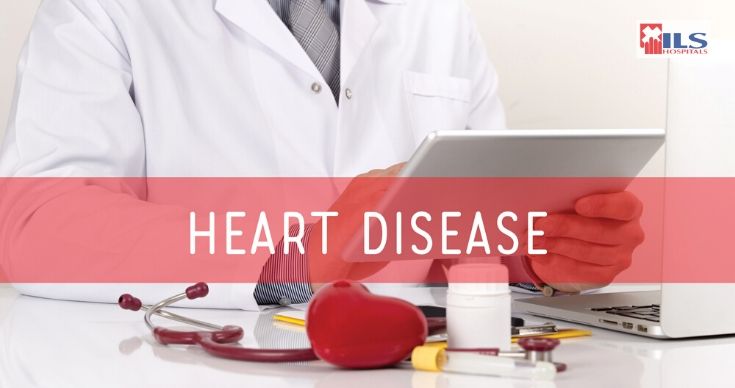Kidney Donation & Transplant in India
In India, about 120 kidney transplant centres are conducting nearly 4000 kidney operations every year. The transplanting of kidneys started in 1970. Since then, India has been a prominent country in this stream of treatment. Initially, during the first ten years, doctors tried to master immune suppression and surgical techniques. It was a great success, and the number of kidney transplants increased.
Organ donation and transplantation became common in later years. Since many illegal organ donations were made, the government approved the Transplantation of Human Organ Act to stop unlawful selling & buying of organs. This act proposed that only deceased donation is legal.
Laws and Rules for Transplanting and Donating Kidney
The government of India passed a new rule along with the main requirements of the Transplantation of Human Organ Act. It includes the following.
1 – Living Donation
The relatives of the patients like father, mother, sister, son, daughter, and spouse can donate a kidney. Likewise, grandparents have also been added to the list in the new publication. It is mandatory to provide the relationship proof of the first relative by undergoing a genetic test or providing legal documents. In case if the donor is not a first relative, you will need special permission from the committee appointed by the government. An interview will also be conducted to prove the purpose.
2 – Brain-Death
There are two certificates to prove brain–death. And the two must be nominated by the proper authority of the government and the doctors. One of the persons nominating the certificate should be a specialised neurologist.
3 – Instruction of transplant activities by creating an AC (Authorization Committee) and AA (Appropriate Authority)
Every state and union territory of India will have these rules. The role of the AC is to control the process of arrangement to favour or reject kidney transplants between the donors and the recipient other than a first-degree relative. One of the main intentions is to assure that the donor is not demoralised for financial consideration to donate a kidney. The Authorization Committee will check the joint application and interview them to content the motive.
Now the removal of the kidney, storing, and transplantation is taken care of by the Appropriate Authority. Every hospital cannot undergo these procedures as it is required for the AA to approve the hospitals. The AA will only allow a hospital to conduct a kidney or any other organ transplantation after a detailed inspection.
The inspection will continue regularly to confirm that the hospital follows the proper standards and quality of kidney transplantation and aftercare. Once the AA is satisfied with the hospital’s facilities, a license will be issued for 5 years and renewed later.
Conclusion
The number of diabetic patients in India is growing drastically, which can result in severe kidney failure. One important thing to do is to try to prevent kidney problems. If a person suffers from kidney failure, it should be diagnosed at an early stage to treat it with medications. You can consult top nephrologists for a kidney transplant in Kolkata India, in case of failure.
The Transplant Registry Records says that more than 2.5 lakh people suffer from the last stage of kidney failure. A few of them undergo dialysis, and some are under heavy medications. If the deceased donation rate increases, it will help a lot of patients suffering from kidney failures. For further inquiries and assistance, you can visit https://www.ilshospitals.com/.
Stress Management in the Times of Covid19
Even though the COVID-19 crisis is a physical health crisis at first but might grow into a major mental health crisis. Good mental health is key to a smooth lifestyle and we, as individuals, should stay on top of our conscience to keep sane.
The pandemic has induced fear and anxiety amongst people due to the exclusivity of the disease. The common emotion that has enveloped people has been stress, fear, and a unified overwhelming feeling. Social distancing has people feeling isolated and induced anxiety about bigger things in life. What we, as a society, can do is stick to our hygiene-first actions to reduce the spread of COVID-19. But while you are at it, ss per the World Health Organisation here are a few ways of coping with stress in a healthy way:
Pause. Breathe. Reflect.
Take some slow breaths: in through your nose, then slowly breathe out. Slow breathing is one of the best ways to lower stress because it signals to your brain to relax your body. Notice how you are feeling and what you are thinking, without judgment. Instead of responding or reacting to those thoughts or feelings, note them, and then let them go.

Connect with others
Talking to people you trust can help. Keep in regular contact with people close to you. Tell them how you are feeling and share any concerns.
Keep to a healthy routine Do:
- Get up and go to bed at similar times every day.
- Keep up with personal hygiene.
- Eat healthy meals at regular times.
- Exercise regularly. Just doing 3-4 minutes of light intensity physical movement, such as walking or stretching, will help.
- Allocate time for working and time for resting.
- Make time for doing the things you enjoy.
- Take regular breaks from on-screen activities.
Don’t:
Don’t use alcohol and drugs as a way of dealing with fear, anxiety, boredom and social isolation..

Be kind to yourself and others
Don’t expect too much of yourself on difficult days. Accept that some days you may be more productive than others. Try to reduce how much you watch, read or listen to news that makes you feel anxious or distressed. Seek the latest information from trusted sources at specific times of the day. Helping others can be good for you too. If you are able to, offer support to people in your community who may need it.
Reach out for help if you need it
Don’t hesitate to seek professional help if you think you need it. A good place to start is your local health worker. Help-lines can also be a source of support.
Psychiatry is the medical domain that is dedicated to the diagnosis, prevention, and treatment of mental disorders of people who are otherwise disease-free. It evaluated patients who suffer from persistent and severe mood swings, unpredictable behaviour and actions, PTSD, panic attack, frightening hallucinations, self-harming, and hearing “voices.” it also includes patients suffering from long-term sadness, hopelessness, or anxiousness, up to a point when it begins to disrupt the everyday life. At ILS Hospitals, our expert psychiatrists are here to assist anyone in the times of a crisis.
To know more, visit www.ilshospitals.com or call ILS Care +91 90514 60000.
Signs Of Underlying Heart Disease By The Best Heart Hospital In Kolkata
Cardiovascular conditions are very common in India. We’ve discussed why in this blog: Why Are Indians So Vulnerable To Heart Diseases? Every underlying disease show tell-tale signs for the individual to observe. If the individual observes and takes prompt action then there’s a chance of an effective proper treatment.
The heart is a vital organ that helps in purifying the blood and supplies the body with oxygen and other nutrients. As per expert cardiologists, many patients ignore the body’s signals of underlying heart disease at the crucial initial levels. So, ILS Hospitals, one of the best heart hospitals in Kolkata and Agartala will enlighten you about the signs that indicate an underlying heart disease.
Chronic tiredness
Fatigue after any laborious activity is understandable but constant fatigue when you do not live an active lifestyle is a matter of concern. Chronic exhaustion can indicate towards an underlying cardiovascular condition.
Shortness of breath
Breathlessness can happen due to various reasons. Shortness of breath after climbing forty stairs makes sense, otherwise, breathlessness for no apparent cause is a medical emergency.
Chest pain and discomfort
Chest pain accompanied by shortness of breath can be a sign of serious cardiovascular condition. Immediately visit the medical emergency room of your nearest hospital.
Irregular heartbeat
Heart palpitations usually happen after a vigorous workout but that does not mean it is not associated with any medical condition. Observe your heartbeat and visit a cardiologist if you have frequent heart palpitations.
Unusual sweating
Cold sweats are not normal. They can hint at an underlying heart disease.
Swollen feet
If you have swollen feet and ankles, consult a medical professional for timely diagnosis and treatment.
Unexpected body aches
Body aches that are sudden and without any reason should not be overlooked. Unexpected body aches can be due to an insufficient supply of blood to the cardiac muscle.
If you encounter the aforementioned signs in your body, do not delay professional medical supervision. Visit ILS Hospitals, one of the best heart hospitals in Agartala and Kolkata to get proper diagnosis and treatment from our expert cardiologists.
Attention Indian Youth! As You Might Be Susceptible To Premature Heart Ailments
Earlier it was said that heartbreak from a romantic relationship was one major reason for heart illness. But, these days, the scenario is quite different. The threat of heart attack is looming over Indian Youth more than it did until a decade ago. This paradigm shift has resulted in Indian youth susceptible to various heart ailments 8-10 years sooner as compared to other ethnic groups from all over the world. As per the statistics collected from some of the best heart hospitals in India, at least 35 percent of the heart patients are under the age of 40. Several cases have been reported where the age of the patient is as young as the early 20s.

Causes and connections for heart ailments
Some of the common causes for these premature heart ailments that have been found are mainly due to family history, personal history of some heart conditions, diabetes /pre-diabetes, excessive stress and unhealthy lifestyle. The genetics root happens to be the most influencing factor when it comes to developing a cardiac ailment. Best heart hospitals have witnessed patients being diagnosed with premature heart ailments, happen to have a parent or sibling with a similar health history. Men are at more risk than women when we compare according to age. Women often show first signs of heart ailment approximately 10 years later than men. However, factors like diabetes in the family, and smoking, may cause, premature heart ailments even in women.
Why are Indian Youths suffering the most?
Indian Youths are somewhat dealing with the dual burden of mental and physical stress. On one hand, due to the cut-throat competitions, they are forced to work exhaustively in order to make a decent living leading to physical exertion and stress. On the other hand, their inability to cope up with the work stress, affect their family life leading to mental stress as well. As a result, the incidents of premature heart attacks are increasing among youth in their years of servitude.
How can Indian youth address it?
Though heart ailments sound scary to deal with, but it can be easily taken care of if preventive measures are taken on time. Heart attack is predominate, not a first-degree illness, meaning it often develops from underlying complications as already mentioned. Thereby, controlling these early warnings can help manage it effectively.
On this International Youth Day, we advise every India youth to take some time out of their busy lives and dedicate the same towards their health. Adequate exercise, quitting alcohol and smoking and leading a healthy lifestyle, often makes change and improve the lifestyle. In case, any symptoms of heart or chest discomfort arises, they are recommended to seek advice from one of the best heart hospitals at the earliest.
4 Ways How Love Can Improvise Your Overall Health
Love, love, and love! With Valentine’s Day just around the corner, that is all you get to hear. You might even be getting sick of hearing about love but it turns out that being in love has its perks too. Let’s take a different approach to love and gather few medically positive aspects of being in love. It might not serve the same purpose as the best heart hospitals, it certainly does add several wonderful aspects in your life.
1. Love makes you psychologically more stable

A happy soul is a key towards a healthier body, and people often find inner strength through their beloved. Moreover, mental issues like hypertension, bipolar disorder, post-traumatic experienced etc. are best resolved along with the company of loved ones. That is the reason why often the presence of the patient’s spouse is also welcomed and encouraged during psychiatric evaluation and consultation.
2. Love makes your heart healthier

Once again, the magical words ‘I love you’ would do no good in event of any cardiac emergency and rush to nearest best heart hospital will only save the life. However, as per studies, the happily married/engaged people have been found to have much better cardiovascular health. Moreover, they contribute towards a lower range of blood pressure, ruling out several cardiovascular issues.
3. Love makes post-surgery and recovery much easier

Despite being rich, young, healthy and careful, having an illness from time to time, and feeling vulnerable at the same is inevitable. Often the surgical approach becomes the only treatment for several illnesses as well. Dealing with post-surgery care and recovery back to health is more effective with a beloved by the side. The feeling of dependency and reliability contribute significantly towards the overall sense of security and well-being and thus speed up the recovery procedure.
4. Love makes you live longer

Loved ones certainly cannot transfer their years into others lifeline, but it indirectly makes them go for positive changes that yield longevity in a long run for sure. Surviving stored and highly processed food, heavy smoking/drinking, being a couch potato etc. can lead to several illnesses in near future.
Having a spouse or even a lover often brings positive reinforcement in these sedentary lifestyle choices. It encourages to make better choices in terms of diet and other factors. It often reduces the chances of getting engaged in rash behavior such as abuse, rash driving, etc as well. Thus, the person lives an ideal lifespan altogether.
Apart from the stated points, a family also gives a sense of purpose and encourage to invest towards medical needs including screening and medical insurance etc. Overall, it ensures a longevity of an individual with healthier aspects.
How Too Much Salt Consumption Can Deteriorate Your Health?
Food without spices is somewhat difficult to imagine, especially in a country like India. However, excessive use of anything can have adverse effects on our health. And one of the most overused things in every kitchen is without doubt, salt. Over consumption of salt can cause severe problems to the heart and can ultimately cause cardiac emergency.
Salt is very important in terms of taste and its composition. Sodium and chlorine is essential for our body to function well. Moreover, the addition of the Iodine to the salt makes it even more vital for daily consumption. However, over-consumption can be drastic, especially for the heart and the blood vessels.

Too much salt can exert excessive pressure on the interior walls of the blood vessels, namely the arteries. The muscles of the arteries grow stronger in order to cope up with this extra strain. It works for a while, but eventually, the space left for blood flow becomes even more restricted and elevates the pressure even more.
This goes in a cyclic pattern, usually over a period of years, after which, the chances of having clogged arteries increase significantly. It can also cause the arteries to burst. The respective organ receiving blood from any of the particular artery gets cut off from its blood supply and gets damaged.
Now we have to narrow our topic to heart and its restricted artery. At the beginning, the heart receives a slightly lesser amount of blood. It triggers a condition called the angina, a sharp pain in the chest, especially while being active. Slowly, the cardiac cells lose their affectivity and functional ability, mainly due to lesser exposure to oxygen and other nutrients.

If the salt over-consumption continues, bursting or clogging of the artery becomes inevitable. This may lead to heart attack, this is one of the major clause which claims several lives every year.
The good news is, lowering blood pressure and eliminating a large portion of salt from diet can make a significant change in the overall health condition. Also, it is advised to take timely measures for the same.
In fact, mitigating the excess amount of salt from the diet is actually one of the easiest ways of keeping the heart healthy. Without a doubt, it is much easier than consuming a lot of medicines.
Heart Attack – 5 Alarming Signs of Possible Heart Attack
Several symptoms of heart attacks can be widely confused and overlooked by most of us. Thus, several people fail to get proper treatment on time. Know these to save a life.
As you are already familiar with the 5 signs of possible heart attack in our previous article. According to cardiologists the five alarming signs which mean possible heart attack.
-
Sweating
Though it is quite common to sweat while doing any strenuous work, as a matter of fact, it is not unusual to sweat during summers. But sweating without any explainable reason can be quite alarming. In fact, it might be a sign your body is giving you of a possible heart attack. Get a checkup, even in case you are having a doubt.

-
Irregular heartbeat
Another symptom that must be calibrated carefully is any abnormal heart rate. Heart beats faster in case of running or being excited, similarly it gets slower in case of being depressed or sad. But if any abnormalities are observed, it could be indicating something more serious than extra caffeine or inadequate sleep.

This condition is medically termed as trial fibrillation and is one of the signs of potential heart attack.
-
Unstoppable cough
Usually, a cough (or a couple of) isn’t something that is related to heart. But repetitive cough without any cold or throat infection that won’t stop is a possible cause of heart attack. Especially a long lasting cough which produces ink or white mucus.

The reason of constant cough is that the heart cannot keep up with the requirement of the body and causes the blood to back flow to the lungs. If not taken care on time, this may result in bloating. The doctor may also look for swollen feet and ankles.
-
Pain that spreads to the throat or jaw
Under normal conditions, the throat and jaw pain are mostly caused by a sinus, muscle pain or a cold. If the pain primarily generates from a chest discomfort that eventually travels upwards to the neck and jaw, it might be another sign of possible heart attack.

-
Snoring
Snoring is that brief period of time, when the breathing pauses momentarily. Most of the people snore at some stage of life, for some, it is while aging, while other young people snore after a tiring day at the office. Snoring for a long time is yet another indication of the body towards a possible heart attack.

If you or any of your friends or family member experiences any of these symptoms, don’t keep making wild guesses and wait for it to get over on its own. Instead, let a doctor address the situation and give proper advice after assessing it.
What Are The 5 Probable Signs Of Heart Attack You Should Watch Out For?
We have come across the saying ‘follow your heart’, but are you paying enough attention to your heart? Can you tell when your heart is not functioning properly? Probably not. In reality, heart attack necessarily does not onset with a clutch over heart closely followed by falling on the floor, like the way it is depicted in the movies. In fact, according to Cardiologists several heart attacks do not even begin with heart or even in the chest. Without proper knowledge it is often difficult to tell.
In case you are in doubt whether it is cardiac arrest or not, it is always advised to go for a checkup, especially if you are aged, overweight or have high blood pressure, sugar or cholesterol.
Look out for these signs in your loved ones and yourselves, which might be signs of heart attack.
-
Chest Discomfort
It is the most alarming sign of any cardiac arrest. In case any of the artery is blocked, i.e. experiencing heart attack, it is more likely to suffer pain, pressure or tightness in the chest. The discomfort may vary from minute to mild to severe. Some describes it as a feeling of having a heavy object on the chest, while others describe it as a burning sensation.
Though some people experience heart attack even without any chest discomfort, especially women, it should be calibrated carefully.

-
Pain which spreads to Arms
Due to blockage of artery, the left side of the body experience pain. It initiates from the chest and spreads through the arm, specifically on the left side. It may last up to a few minutes, and can occur in episodes, i.e. the pain comes and goes away.

-
Heartburn or Indigestion
The occurrence of any or all of these signals should be considered as a possible sign of heart attack. Moreover, some may vomit along with it. As per Cardiologist, women are more likely to experience it as compared to men. These symptoms get easily neglected by most of the people as these symptoms happen to people every now and then due to acid reflux or improper diet as well.

-
Fatigue or Exhaustion
Feeling fatigued even after doing some light work such as climbing stairs or taking a stroll. It may be a sign of weakness and it is not alarming if it occurs once or twice, but repeated occurrence of unexplained weakness, especially for women, should not be neglected and immediate help should be sought.

-
Feeling Dizzy
Experiencing dizziness or out of balance or feel faint, it should be closely observed. Though it may be a result of inadequate food. But if it is combined with chest congestion, then it should ring a bell.

These signs are the most prominent of that of heart attack. So educate yourself, your family and colleagues for an early detection and timely treatment.
Watch out 5 more symptoms of possible heart attack here.



















